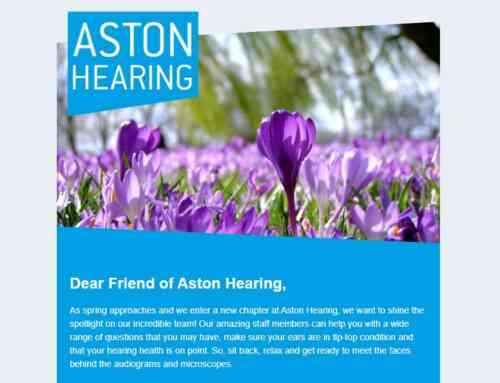HEARING LOSS AND MENTAL HEALTH
Many of us forget that hearing loss is not just losing a precious sense, but a loss that can cause a host of contributory mental health problems including fatigue, stress, anxiety, depression and isolation. Hearing loss can be a catastrophic life event affecting your ability to interact with friends and family, severely impacting your work and resulting in loss of income. Hearing loss can cause grief, anger and anxiety and you can become isolated and involved in fewer social activities. We know there is a higher incidence of emotional and behavioural disorders amongst people who are deaf and that they are also more likely to misuse alcohol and drugs.
Tinnitus in particular can be incredibly overwhelming to live with, particularly at onset. It is important to note that sometimes tinnitus causes depression but equally depression has been linked as a causal factor for tinnitus. Similarly, individuals suffering with hearing loss often feel stressed and frustrated which may have the effect of worsening the hearing loss further.
Reduced hearing can create anxiety in everyday situations; it can be tiring and make you feel lacking in energy. Untreated hearing loss can lead to cognitive decline because the auditory part of the brain is not being used as much.
Of course hearing loss takes an enormous amount of adjustment, but many of our clients continue to have happy and fulfilling lives, doing well at work and staying social despite any hearing issues that they may have. This is largely down to the fantastic hearing technology now available in hearing aids which is life-changing.
SO WHAT CAN WE DO TO HELP?
- Many people with hearing loss need bespoke hearing aids or cochlear implants. There is a direct correlation between the use of hearing aids and improved mental health. The sooner the patient is fitted with the right hearing aids, the better.
- An effective, holistic rehabilitation process is needed for people with hearing loss. We need to make sure there is accessible help from all hearing services, audiology units, mental health services and GPs, and that they recognise the emotional impact of hearing loss and provide effective support. GPs in particular need to be aware of the psychological effects and to be able to provide access to communication training, as well as mental health support.
- We need to change the hearing culture and remove the barriers faced by those who are hard of hearing, in order to provide the best possible support.
- Encouraging social and support networks and staying in employment can protect against mental health problems. Greater independence for individuals with hearing issues is vital to ensure they don’t feel anxious to go out and boosting their self esteem.






